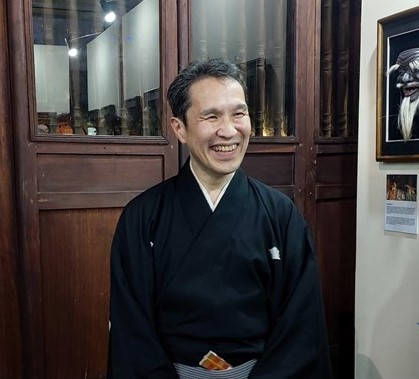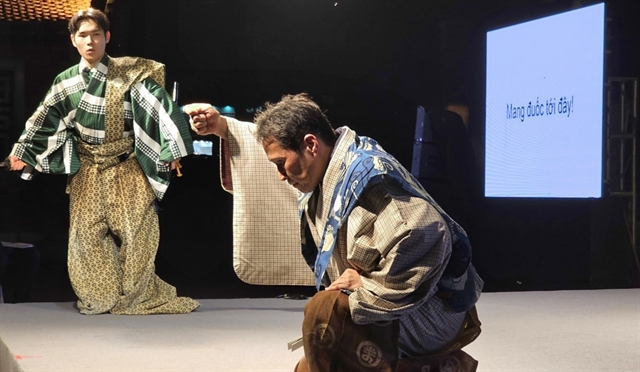 Life & Style
Life & Style

Local audiences for the first time have seen the Japanese ancient comedy art called Kyogen performed by father and son artists Ogasawara Tadashi and Ogasawara Hiroaki. The art uses very few props and is understood through the artists’ facial expressions and gestures. The shows aim to celebrate the 50th anniversary of diplomatic ties between the two countries.
Lê Hương chats with artist Ogasawara Tadashi on his shows in Việt Nam.
 |
| Kyogen artist Ogasawara Tadashi. VNS Photo Minh Thu |
- Could you please explain the main features of Kyogen?
- Kyogen is a kind of comedy that is 650 years old. Throughout the years, it has been handed down to the next generations. Now, it is among the oldest traditional arts in Japan. Regarding content, Kyogen is a kind of comedy that makes people laugh. Kyogen is an art inside Nohgaku, Japanese theatrical art, that has been recognised as an intangible cultural heritage of humankind by UNESCO.
- What did you perform in front of Vietnamese audiences?
- I have performed three shows in the Literature Temple in downtown Hà Nội and one show in Hà Nam Province. Most of the audience was seeing the show for the first time so I spent the first part of each show in Hà Nôi introducing the features of this art. Then I and my son performed Bonsan, a comedy about a poor man who sneaked into his rich friend’s house to rob a bonsai. Various funny interactions take place when the owners of the house discover him. We used some Vietnamese phrases that we had just learned to bring along laughter to Vietnamese audiences.
Vietnamese audiences liked the show very much. The 50th anniversary is an important milestone for both countries. I hope my shows mark a fresh transition in the relationship between the two countries.
 |
| Father and son artists Ogasawara Tadashi (right) and Ogasawara Hiroaki perform at the Literature Temple. VNS Photo Lê Hương |
- Could you talk about the masks displayed at the exhibition during the shows?
- Kyogen is a kind of theatrical art in that we sometimes use masks. I’m a Kyogen performing artist and a mask maker at the same time. In three shows in the Literature Temple, we did not use the masks but we used them in the shows in Hà Nam. We used all 20 masks brought along this time. The masks were made of Hinoki wood, a kind of wood used for making delicate artworks in Japan. On this wood, we carve details, then draw with a traditional drawing style. So each mask features the art of Japanese traditional carving on wood and drawing. We rarely display so many masks at the same exhibition in Japan. Yet this time in Việt Nam, we displayed 20 masks including some masks I just completed shortly before I came here. I hope that Vietnamese audiences found their favourite masks among the ones displayed at the exhibition.
In Tam Chúc Pagoda in Hà Nam Province, I performed a dance dedicated to the gods and wore my latest mask. The dance dedicated to the gods is very important in Japanese people’s spiritual life. I performed it here to celebrate the relationship between the two countries in the past 50 years and we wish for a long future for our close ties. VNS




